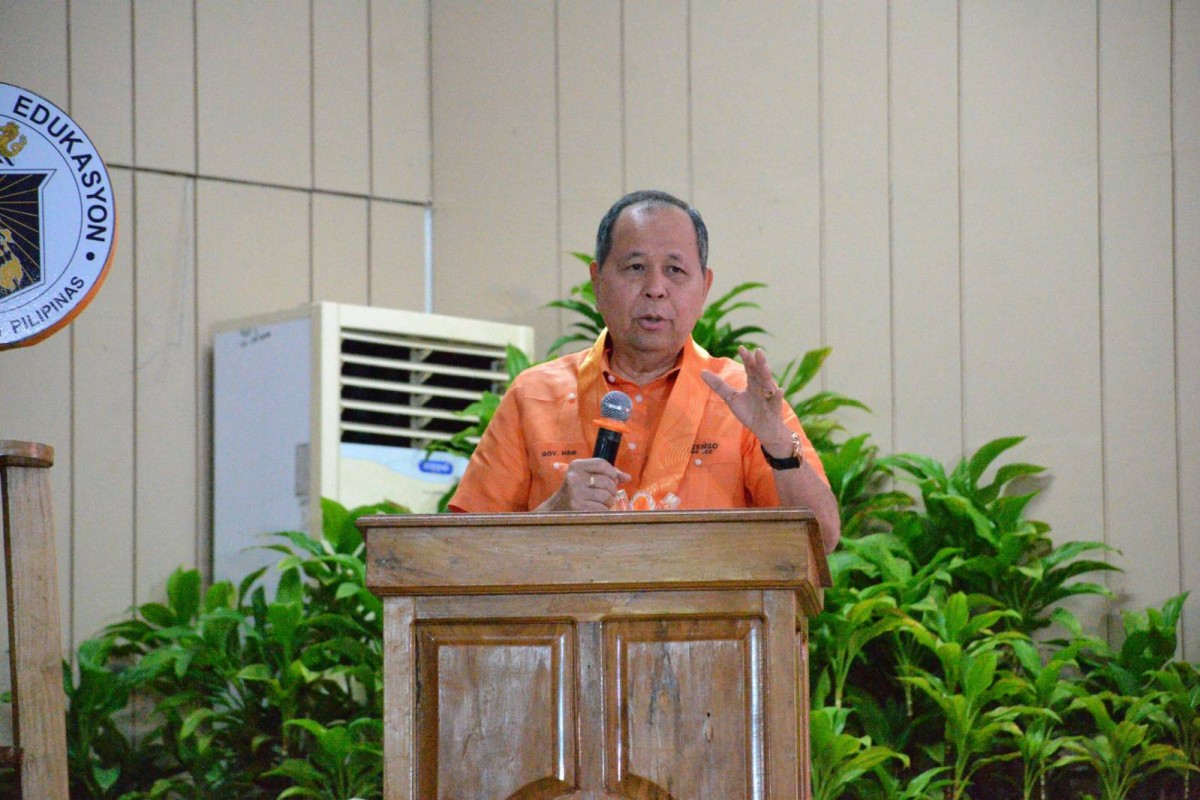MISAMIS OCCIDENTAL (PIA)--Governor Henry Oaminal emphasized that the vision of Asenso Misamis Occidental integrates disaster risk reduction, management, climate change mitigation, and adaptation as the province envisions a future where every Misamisnon lives in a safe, secure, and disaster-resilient environment.
During the 1st Division Disaster Risk Reduction and Management and Climate Change Empowerment Summit held at the Asenso Misamis Occidental Sports and Cultural Center, Oroquieta City, August 25, Oaminal explained that Republic Act No. 10121 defines Disaster Risk Reduction and Management as the systematic process of using administrative directives, organizations, and operational skills and capacities to implement strategies and policies and improve coping capacities to lessen the adverse impacts of hazards and the possibility of disaster.
On the other hand, climate change empowerment is all about capacitating people through education, training, public awareness, public participation, and public access to information on climate-related matters so that we can mitigate and adapt to the impacts of climate change.
"This gathering therefore presents a crucial opportunity for us to come together, share knowledge, and collaborate on strategies to mitigate the impact of disasters and address the challenges posed by climate change," he said.
Disaster risk reduction and management, as well as climate change, are pressing issues that demand immediate attention and action.
The increasing frequency and intensity of natural disasters, coupled with the long-term effects of climate change, pose significant threats to our communities, economies, and environments. He shared that in December 2022, the province experienced severe flooding in many areas due to a shear line that destroyed the well-being of thousands of Misamisnons.
At the 1st DDRR and Management and Climate Change Empowerment Summit, the governor explained that they can empower DepEd personnel, offices, schools, and learners to ensure safety and learning continuity.
Moreover, this will help institutionalize disaster risk reduction and management, climate change mitigation and adaptation, and education in emergencies. This will also help strengthen the resilience of basic education in the context of natural and human-induced hazards.
"As the governor, I am committed to ensuring the resilience and welfare of our province and its residents. It is only through proactive and strategic measures that we can effectively safeguard our community against the adverse impacts of disasters and climate change," Oaminal said.
He also emphasized that disaster is not only about natural disasters but also covers human-induced disasters. Man-made disasters have an element of human intent, negligence, or error involving a failure of a man-made system as opposed to natural disasters resulting from natural hazards. Meanwhile, man-made disasters include crime, public disorder, terrorism, war, and cyberattacks, among others.
As part of the measures to ensure risk reduction and management for both natural and man-made disasters, R.A. 10121 and its implementing rules and regulations (IRR), specifically rule 7 paragraph (H), mandate local government units to establish an incident command system as part of the on-scene disaster response system to ensure the effective consequence management of disasters or emergencies.
Oaminal added that the summit serves as an important platform for us to exchange best practices, learn from one another, and develop innovative and sustainable solutions. "By sharing our experiences and expertise, we can enhance our collective understanding of disaster risks and identify strategies to build resilience," he said.
The governor also urged all participants to actively engage in the discussions and networking opportunities offered by the summit. "It is through collaborative efforts that we can develop robust disaster risk reduction and management frameworks, devise effective adaptation strategies, and implement sustainable practices to mitigate the impact of climate change," he said.
On the other hand, he also urged the participants to explore opportunities for partnerships and collaborations that can drive meaningful change. By working together, they can leverage collective strengths and resources to make significant progress in disaster resilience and climate action.
"I hope that this summit will yield tangible outcomes and actionable strategies that can be implemented in our respective communities. Let us seize this opportunity to mobilize, inspire, and lead change in our cities and towns and beyond," he said. (PGMO/PIA-10/Misamis Occidental)





